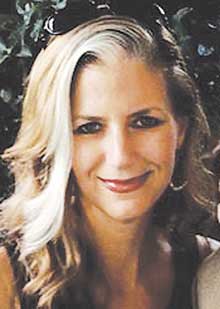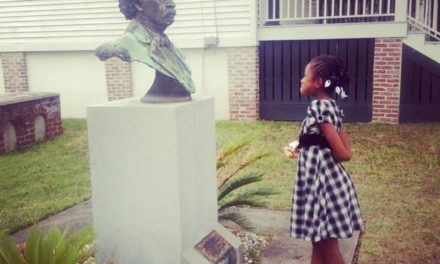 By Margaret Evans, Editor
By Margaret Evans, Editor
I was Facebooking with a friend the other day about a phenomenal concert we’d both seen the night before – a performance by the Clover Choraliers, an award-winning high school choir from the upstate – and she mentioned that their first number had brought her to tears.
“It brought me to tears, too,” I responded. “And I remained there.”
This exchange got me thinking about the way we use the word “tears,” almost as if it were describing a place. We don’t say “I made tears” or “I did tears” or “I had tears” or even “I cried tears.” (Well, we do say that occasionally, but it sounds pretty awkward.) Instead, we’re always moved to tears or brought to tears or simply . . . in tears. It’s almost as if we’ve left one place and gone some place new. Like we’ve been taken there, by some outside force, through no act of our own . . . almost against our will.
We don’t talk about other expressions of emotion that way. We don’t say, when we’re angry, “I was in cuss words” or “I was moved to a primal scream.” We don’t say, of amusement, “I was in laughter” or “I was moved to giggles.”
Sure, we talk about being in ecstasy… and being in love. (We even fall in love.) But those are both abstracts. Emotional conditions. A “tear” is a palpable, material thing. A tiny drop of salty water that falls from the eye.
Are you following me?
Probably not, because I’m not making much sense. I’m tying myself in linguistic knots that aren’t even worth untying. My point – if I have one – is that to be “in tears” is to be transported to another realm. To shake off these earthly chains and transcend to a higher state of being.
Or that’s what I like to tell myself, anyway, since I seem to “go there” more easily than most people. I travel to the place called Tears regularly, in fact. Pretty much every day. I wrote a column about my situation a few years back – called it “The Town Crier” – in which I described it thusly:
“Some people get nosebleeds. Others sweat profusely. Still others struggle with issues like stuttering or snoring.
“Me? I suffer from Overactive Tear Duct Syndrome Related to Hypersensitivity.
“Apparently, it’s a somewhat rare condition, and I’ve had it since birth. There’s not much science out there, but my mom and I have decided it must be genetic. She, too, suffers from OTDSRH.
“But ‘suffer’ is probably the wrong word. The condition, though chronic and untreatable, is painless. As with many longstanding afflictions, it’s not so much the patient who suffers as the family. My husband is increasingly irritated by my symptoms (i.e. frequent, unexpected crying jags), and my daughter is downright embarrassed. They don’t seem to understand that I have no control over my condition. The tears just come, unbidden – often out of the blue – and when they do, I have to go with the flow.”
I wrote these words about five years ago, and my condition has not improved since then. If anything, it’s gotten worse.
But what I didn’t know, when writing that goofy, larky column, is that there’s an actual, semi-scientific term for people like me. We have our own official label – HSP – which stands for Highly Sensitive Person. It’s not really a “condition” – more like a designation – and apparently 15-20 % of the population falls under it.
This means I have some fairly substantial company in the land of tears.
Wondering if you, too, might be an HSP? There’s a test you can take at www.hsperson.com. According to Wikipedia, “some common signs are sensitivity to loud noises, bright or fluorescent lights, and strong smells. HSPs often describe themselves as having a rich and complex inner life. They may startle easily and get rattled when required to accomplish a lot in a short time.”
Check, check, and double check. I’m rattled even as I write this column. Rattled is my middle name.
Other symptoms suggesting you might be an HSP include a low threshold for pain (check!), being easily affected by other people’s moods (check!), being easily shaken when there’s a lot going on at once (oh, check!) and being deeply moved by the arts and music (check to the nth degree!).
Dr. Elaine Aron – the preeminent HSP expert – says we HSPs process sensory data much more deeply and thoroughly due to a biological difference in our nervous systems.
See, it’s a physical thing. We were born this way! Keep that in mind next time you find yourself sniggering at some poor sap who’s weeping over a Hallmark commercial. Don’t be a hater.
Because let me tell you, in no uncertain terms . . . To be born an HSP is to be born with a super-active passport to the place called tears. We’re likely to traipse back and forth from there as often as most locals drive across the Woods Bridge from Beaufort to Lady’s Island and back. We can’t help it.
In the past few days, I’ve been driven – yes, driven! – to tears by forces both likely and… un. The aforementioned Clover Choraliers concert . . . Pat Conroy’s tribute to Jonathan Green at the Chamber of Commerce Civitas Awards . . . rounding up my daughter’s old books to give away (even her Dr. Seuss!) . . . Bach’s Prelude in G minor on the organ at church last Sunday . . .
Those seem like fairly normal, respectable tearjerkers to me, am I right? But what about that episode of Madame Secretary? Or that low-hanging magnolia blossom at the end of Lafayette Street? Jimmy Buffet singing “Come Monday” on the radio? That bird’s nest I found in my window box? I think we’re in HSP country now.
In his book Beyond Words, Frederick Buechner wrote, “Whenever you find tears in your eyes, especially unexpected tears, it is well to pay the closest attention. They are not only telling you something about the secret of who you are, but more often than not God is speaking to you through them of the mystery of where you have come from and is summoning you to where, if your soul is to be saved, you should go next.”
This feels right to me, and I always take my tears seriously. I am most mindful, most grateful, most wondrously alive in the place called Tears. But my easy passage there can be somewhat inconvenient, and 80-85% of the world doesn’t understand, so one does learn to take precautions.
Friday evening, my husband and I met up with a bunch of other parents to snap pictures of our graduating middle schoolers – soon to be high schoolers – as they preened in Waterfront Park before heading off to the 8th Grade Social. I wore giant black sunglasses for the occasion.
It wasn’t a fashion statement.





